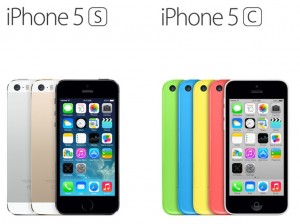Many have been wondering whether TVs work together, or against growing internet technology. Shows that used to be only accessible through TV sets are now easily found online. Netflix, the popular streaming site, is the example of internet competency passing expectations. Not only does it offer a wide variety of television programs, it’s also more accessible to users who already spend a great deal of time surfing the internet as they can stream it online. Television viewers can only watch a show at a particular time whereas on Netflix, viewers can watch whatever they please. Additionally, Netflix “picks and chooses” the best episodes of selected shows to offer premium quality to customers. It has also opened up opportunities in terms of serialized dramas, which, when played on TVs, can easily lose viewer’s interests because of the wait time interval between an episode being played and the next. Netflix resolves this problem by allowing watchers to watch many episodes back to back so that it is fresh in their minds when anticipating new episodes. Original content produced for Netflix is the talk of many producers now. Projects that need funding to be completed can now be aided through Netflix in return for viewership rights and exclusivity.
Monthly Archives: September 2013
Price Customization Software Threatens Internet Privacy
Online retailers were revealed to be using price customization software which offers higher or lower prices to increase successful sales rates according to the internet browsing behaviour of unsuspecting e-shoppers. Such software identify cookies, browsing data of internet users, and track other visited websites to deduce whether the buyer has a large budget, or is in a hurry to buy. It was revealed that even Twitter posts regarding buyers’ preferences have been detected – thus invading user privacy and questioning the fairness of e-commerce. This new insight suggests that multiple buyers looking at the same item on Amazon may actually be presented with different prices depending on their browsing history and how the software customizes it. While this technique is employed in face-to-face retail, the internet isn’t the same territory. It’s an invasion of privacy for online retailers to use customer data without consent to tailor a price which varies according the customers’ background. Such behaviour is unethical due to lack of respect for customer privacy and the “fair-play” in business overall. Internet sellers are taking advantage of technology to create an environment with unstable prices fluctuations which reduce the buyer’s chances of getting a good deal.
Facebook Turning into Anti-Social Ads-book?
Facebook recently began inserting ads popping-up in users feeds whether they ‘liked’ the sponsor or not. Companies advertising on facebook might do better to re-think their options and remember the GOAL of facebook. Facebook aims to bring individuals closer keeping everyone ‘connected’. Is there really room for ads in a social networking site like facebook? People go on facebook to inform others of their eventful lives and in turn, observe other people’s daily goings on. Users simply aren’t interested in seeing ads all over the place because that’s not what they’re there to do. Users have started training their eyes to avoid looking at the ads on the sides or just simply bypass ads that come up in the news feed without further thought. Likekwise, what originally seemed like a great social networking tool has turned sour as studies observe people feeling more lonely even with 1k+ facebook friends. It’s important to realize that knowing about another’s life through their facebook posts isn’t the same as them telling you, face-to-face, about their endeavors, triumphs, and laughs. Facebook seemingly ‘bridges the gap’ between people but its effects are the opposite: eliminating the need for live interaction – which in turn isolates people.
Apple’s New iPhone 5C Part of a Bigger Strategy?
Following the launch of the two new iphone models from Apple, many are speculating about the advisability of introducing two smartphone options at once. From this article, it is apparent that the iPhone 5C is neither cheap enough to compete with Samsung phones, nor is it on the higher end of this iPhone release (5S). It’s priced so that if customers pay a little beyond the cost of the 5C, they can afford the 5S. If you’re already going to fork out a considerable amount for the 5C, just a little more money could give you a much better phone with better features. In the first moments of release, the 5C has already been condemned as a ‘cheaper’ alternative to the 5S. Buying the 5C is like admitting that you are chasing the brand of Apple while not being able to keep up with its pricey options. This leads me to conclude that the 5C may be part of a bigger strategy to steer consumers into buying the 5S more assuredly. With a less impressive model being launched beside it, the 5S seems even more impressive in comparison and more attractive to buyers who will spending more purchasing the 5S.
Fair Trade Coffee – An Inspiration in Business Ethics
Fair trade coffee is a program that ensures the livelihoods of small scale coffee producers in LEDCs. Retailers of the coffee sell it at a higher price to consumers, the extra funds will directly aid small family businesses that are dependent on producing coffee to earn a living. Fair trade Coffee is traded at a reasonable price which protects farmers from being exploited with lower wages by transnational corporations. Countries which participate in the Fair Trade Coffee certification are mostly located in South America (though a few are in Africa as well). Consumers are willing to purchase Fair Trade Coffee at a higher price which guarantees the reasonably set traded price of importers. Otherwise, they would have to sell their coffee beans at lower prices because of their lack of competitiveness in the global market in comparison to large scale coffee plantations. This is a dominant example of the consideration of ethics in businesses. It raises awareness and provides certainty and satisfaction to those consumers in MEDCs who are know the advantages of purchasing coffee with the Fair Trade labels on them. They can be sure that the coffee has been produced at a set standard, and traded with ethics which promote the well-being of consumers and producers.
UBC Sauder Frosh Reputation Takes a Hit
In the recent COMM101 discussion regarding the damaged reputation of Sauder School and its signature orientation event, Frosh, I was reminded of another similar issue I saw in business. The immoral acts of chanting inappropriate rhymes dealt a blow to the ethical standards expected of UBC, which was exposed to the public, receiving enraged responses from the community. A parallel can be drawn between this case and that of the exclusive statements of the CEO of Abercrombie and Fitch. In both cases, individuals in positions of power (Frosh leaders, and the A & F CEO), have incurred public backlash by ‘promoting’ socially unacceptable behaviour. The A&F CEO stated that “We hire good-looking people in our stores. Because good-looking people attract other good-looking people, and we want to market to cool, good-looking people. We don’t market to anyone other than that.”, and more importantly, “A lot of people don’t belong [in their clothing size range], and they can’t belong. Are we exclusionary? Absolutely.” These controversial pronouncements have enraged organizations and communities as it promotes elitism – which stakes the obese members of society’s equality. Both these incidents have resulted in a damaged reputation due to incorrect moral values and insensitivity.



